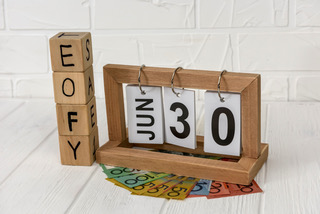With June 30th fast-approaching  , legitimate tax deductions reduce your trade business’ profit and the amount of tax your business pays. By knowing the deductions you’re eligible for you can make sure you’re claiming everything you’re entitled to. Here are some key tax deductions that every tradie should be aware of to ensure they are taking full advantage of the tax benefits available to them….
, legitimate tax deductions reduce your trade business’ profit and the amount of tax your business pays. By knowing the deductions you’re eligible for you can make sure you’re claiming everything you’re entitled to. Here are some key tax deductions that every tradie should be aware of to ensure they are taking full advantage of the tax benefits available to them….
1. Tools and Equipment 🛠⚙
One of the most significant deductions for tradies is the cost of tools and equipment used for work. This includes both the purchase price of tools and equipment, as well as any repairs and maintenance costs. For example, if you are a carpenter, you can claim deductions for your hammers, saws, drills, and other tools essential for your trade.
Also, don’t forget about the $20,000 instant asset write-off, which means that as a small businesses you will be able to immediately deduct the full cost of eligible assets costing less than $20,000 purchased and ready for use in the 2023/2024 financial year. Take note that this $20,000 threshold is per asset basis, so you can instantly write-off multiple assets costing less than $20,000, not just one.
2. Protective Clothing 🧥🥾
Another important deduction for tradies is the cost of purchasing and maintaining protective clothing. This includes items such as steel-capped boots, high-vis clothing, helmets, gloves and even sunglasses and sunscreen for working outside. These expenses, including associated laundry expenses, are fully tax-deductible as they are necessary for ensuring your safety while on the job.
3. Vehicle Expenses 🚗⛽
If you use your vehicle for work-related purposes, you may be eligible to claim deductions for the costs associated with running and maintaining your vehicle. This includes expenses such as fuel, registration, insurance, servicing, and repairs. You can choose to claim these expenses using the logbook method or the cents per kilometre method, depending on which is more beneficial for you. It’s important to know though that normal trips between your home and job site are normally not tax-deductible unless you need to carry bulky equipment required for the job that is difficult to transport and can’t be stored onsite.
4. Travel Expenses 🚕✈🚁
Travel expenses incurred for business purposes, including accommodation, meals, and transportation, are typically deductible for Australian tradies. This encompasses both domestic and overseas travel related to various business activities including meetings, conferences, and site visits. However, it’s crucial to maintain detailed records of travel dates, locations, purposes, and receipts to support these deductions and should be directly linked to earning business income and not for personal purposes.
5. Insurances🙎♀️
Business-related insurances are all tax-deductible and you can even claim income protection insurance as a business expense.
6. Training and Education 📚
As a tradie, staying up-to-date with the latest industry trends and technology is essential. Any expenses related to training courses, workshops, or seminars that are directly relevant to your trade are tax-deductible. This includes the cost of tuition fees, textbooks, and travel expenses associated with attending any courses.
7. Home Office Expenses 📌💻
If you run your tradie business from home or do admin work outside of your regular on-site hours, you may be able to claim deductions for home office expenses. This can include a portion of your internet and phone bills and maybe even your rent, as well as purchasing a computer and other home office equipment. Make sure to keep all your receipts for these expenses to support your claims.
8. Professional Fees 📃
Fees paid to professionals for services rendered to your business, such as accountants, bookkeepers, solicitors and consultants, are all tax-deductible. Subscriptions to professional associations and industry publications relevant to your business are also considered valid tax-deductions.
9. Write Off Bad Debts 😫🤬
If you report on an Accruals Basis, write-off invoices that won’t be paid to reduce your taxable income. Make sure to keep a record of invoices, communication trails, and any relevant documentation showing attempts to recover the debt.
10. Donations $$$
It’s important to note that not all donations qualify for tax deductions. To be claimable, donations must be made to a Deductible Gift Recipient (DGR), be more than $2.00 and you have the receipt. Private donations, such as those made to personal GoFundMe causes, are typically not tax-deductible.
By taking advantage of these key tax deductions, tradies can effectively reduce their taxable income and increase their tax refund from the ATO. It is essential to keep accurate records of all expenses and consult with a professional to ensure you are maximising your deductions within the bounds of the law.
Save yourself tax but still sleep well at night!
P.S. Want to make sure you are claiming everything you can? Feel free to reach out to someone in the know on 0424 467 921 or bettina@tradiesbookkeeping.com.au


